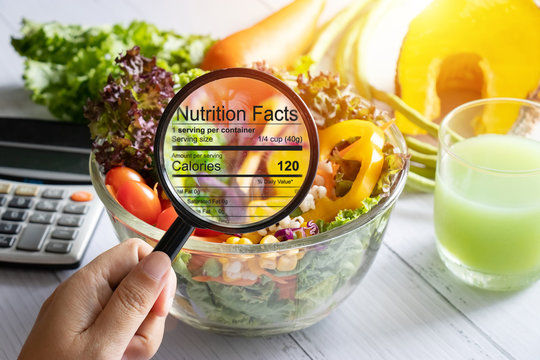Quadbiotics & GLP-1: The “Natural Ozempic” Hype. What’s Real and What’s Just Marketing?
- Nicole Barney
- Apr 11
- 4 min read
If you’ve been anywhere near the wellness space lately, you’ve probably heard whispers (or full-blown declarations) about quadbiotics—the new gut-health supplement category being positioned as a natural alternative to GLP-1 drugs like Ozempic and Wegovy.
And when a supplement claims it can help curb appetite, balance blood sugar, and support weight loss without a prescription? It’s going to get attention.
But here’s the question we really need to ask:
Can quadbiotics actually do what these powerful drugs do—or is this just clever branding wrapped around gut health 101?
Let’s break it down—the science, the promises, and whether or not a quadbiotic might deserve a spot in your wellness routine.
What Exactly Are Quadbiotics?
"Quadbiotic" isn’t a clinical term. It’s a marketing label—one that bundles four categories of gut support into a single supplement:
Probiotics – The “good” bacteria that support a balanced gut microbiome
Prebiotics – The fiber that feeds those good bacteria
Postbiotics – The byproducts (like short-chain fatty acids) that have effects on inflammation, gut lining, and metabolism
Phytobiotics – Plant compounds like polyphenols that offer gut and systemic support
Together, these four “biotics” aim to work synergistically—improving not just digestion, but also hormonal and metabolic signaling, including pathways linked to GLP-1.
GLP-1 101: Why It’s the Star of the Metabolism Show
GLP-1 (Glucagon-Like Peptide-1) is a hormone your gut naturally releases when you eat. It does a few important things:
Helps your body release insulin
Slows gastric emptying (you stay full longer)
Sends satiety signals to the brain
Supports blood sugar regulation and, indirectly, weight control
Drugs like Ozempic, Wegovy, and Mounjaro are GLP-1 receptor agonists—meaning they mimic this hormone and amplify its effects. The results? Decreased appetite, significant weight loss, and better blood sugar balance.
So the idea of a natural way to support your own GLP-1 production? Totally appealing. And that’s where quadbiotics enter the chat.
Can Quadbiotics Actually Boost GLP-1?
Here’s where things get interesting. Quadbiotics don’t contain GLP-1 or function like the drugs directly—but some of their ingredients may nudge your body into making more of it naturally.
Let’s walk through the mechanisms:
SCFAs (Short-Chain Fatty Acids): These postbiotics (like butyrate and propionate) are produced when probiotics ferment prebiotics in the colon. SCFAs can stimulate L-cells in your gut to secrete more GLP-1.
Specific Probiotic Strains: Strains like Akkermansia muciniphila, Clostridium butyricum, and Bifidobacterium infantis show early promise in increasing GLP-1 activity (mainly in animal and small human studies).
Prebiotic Fibers: Ingredients like inulin and FOS feed those bacteria that make SCFAs—creating the right gut environment for natural GLP-1 release.
Phytobiotics: Polyphenol-rich plants and extracts may also play a role in modulating the gut-brain axis, but research here is still emerging.
So yes—some quadbiotic blends might support GLP-1 indirectly. But we’re talking nudges, not nuclear options.
Quadbiotics vs. Ozempic: Let’s Be Real
This is where we need to level-set expectations.
What Quadbiotics Can Do:
Support a healthier gut microbiome
Create favorable conditions for natural GLP-1 secretion
Help regulate appetite slightly (especially if your gut was a mess before)
Contribute to better digestion, metabolism, and long-term wellness
What They Can’t Do:
Mimic pharmaceutical GLP-1 action
Trigger rapid or dramatic weight loss
Replace medication for diabetes or serious metabolic issues
Think of it this way: quadbiotics are like improving the soil in your garden. GLP-1 meds are like hiring a landscaping crew to bulldoze and replant everything overnight.
Top Quadbiotics Getting Buzz Right Now
Here are a few that are making waves—either because of real science or strategic marketing:
Pendulum GLP-1: Contains Akkermansia muciniphila and Clostridium butyricum. Backed by small human trials. Premium pricing, but likely the most science-driven option.
GLP-Activate: Popular on Amazon, features probiotic strains, prebiotics, cinnamon, and chromium. Reviews are mixed, but it’s keyword-optimized to attract the curious.
Seed Synbiotic: Not specifically GLP-1 targeted, but a high-quality pre+probiotic blend for general microbiome health.
Just Thrive Probiotic & Prebiotic: Spore-based strains that survive stomach acid.Focused more on immune and digestive health—not marketed as a GLP-1 booster.
So, Should You Try a Quadbiotic?
You might benefit if:
You’re focused on healing or optimizing your gut
You’re looking for gradual, natural ways to support metabolism and appetite regulation
You eat relatively well and want to level up your microbiome
You might want to skip if:
You’re hoping for Ozempic-level weight loss in a bottle
You need medical support for diabetes or insulin resistance
You’re on a tight budget—these supplements aren’t cheap
Final Thoughts
Quadbiotics are an exciting development in the world of gut health—but they’re not magic pills. They’re tools. And like all tools, their results depend on the foundation they’re added to.
If your diet, movement, and stress levels are in check? A quadbiotic could be a smart next step in metabolic support.
But if you’re expecting a miracle weight loss shortcut? Save your money—and your frustration.
And always, always consult your healthcare provider before starting any new supplement, especially if you’re managing a condition.
Let your gut do the talking—but make sure the rest of your routine is listening too.



